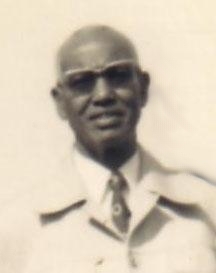
Politics of Djibouti takes place in a framework of a presidential representative democratic republic, whereby the executive power is exercised by the President and the Government. Legislative power is vested in both the Government and the National Assembly. The party system and legislature are dominated by the socialist People's Rally for Progress. In April 2010, a new constitutional amendment was approved. The President serves as both the head of state and head of government, and is directly elected for single six-year term. Government is headed by the President, who appoints the Prime Minister and the Council of Ministers on the proposal of the latter. There is also a 65-member chamber of deputies, where representatives are popularly elected for terms of five years. Administratively, the country is divided into five regions and one city, with eleven additional district subdivisions. Djibouti is also part of various international organisations, including the United Nations and Arab League.

Ismaïl Omar Guelleh is the current President of Djibouti, in office since 1999. He is often referred to in the region by his initials, IOG.

Dileita Mohamed Dileita is a Djiboutian politician who was the Prime Minister of Djibouti from 7 March 2001 to 1 April 2013. He was Vice-President of the People's Rally for Progress (RPP), the governing political party, until 2012. He also served as President of the Union for the Presidential Majority (UMP), the governing coalition. In June 2014, Dileita was appointed as the African Union's Special Envoy for Libya.
The National Democratic Party is a political party in Djibouti. It was founded as an opposition party in 1992 by Aden Robleh Awaleh, who remains the party's president. It was part of the ruling coalition in 2005, but has since rejoined the opposition against President Ismaïl Omar Guelleh.

National-level elections in Djibouti are held for the President and the unicameral National Assembly.
The Social Democratic People's Party is a centre-left, social democratic political party, in Djibouti, founded in 2002 and led by Moumin Bahdon Farah. It is part of the governing coalition, the Union for a Presidential Majority (UMP).
Aden Robleh Awaleh is a Djiboutian politician and President of the National Democratic Party (PND). He is currently a member of the National Assembly of Djibouti.

A parliamentary election was held in Djibouti on 8 February 2008. There were 65 candidates running for the 65 seats in the National Assembly, with all of the candidates coming from the ruling coalition, the Union for the Presidential Majority (UMP). The opposition boycotted the election, and the UMP won all 65 seats.

The 2005 Djiboutian presidential election took place on the 8 April 2005. The incumbent President of Djibouti, Ismail Omar Guelleh, was re-elected to a second six-year term in an unopposed election.

The 2003 Djiboutian parliamentary election took place in Djibouti on 10 January 2003 to elect the National Assembly of Djibouti. The ruling coalition of President Ismail Omar Guelleh won all 65 seats in the election defeating an opposition coalition.

Voters in Djibouti re-elected President Ismail Omar Guelleh by an 80% margin in that nation's April 8, 2011 presidential election. He defeated Mohamed Warsama Ragueh, an attorney and former judge who took 19% of the vote.

The 2011 Djiboutian protests were widespread demonstrations and riots that took place between January and March 2011 in Djibouti, situated in the Horn of Africa. A member of the Arab League, the protests in Djibouti showed a clear influence from the concurrent Arab Spring protests in North Africa and the Arabian peninsula. The demonstrations ended after mass arrests and the barring of international observers.
Ahmed-Idriss Moussa is a politician from Djibouti who served in the French National Assembly from 1962-1967. An independent, he was the main opposition candidate in the 1999 presidential election against President Ismaïl Omar Guelleh.
The Union for the Presidential Majority is the ruling political coalition in Djibouti. The coalition supports the Presidency of Ismaïl Omar Guelleh.
The following lists events that happened in 2005 in Djibouti.

Presidential elections were held in Djibouti on 8 April 2016. Incumbent President Ismaïl Omar Guelleh was re-elected for a fourth term, receiving 87% of the vote in the first round.
Mohamed Warsama Ragueh is a Djiboutian lawyer and former judge. He was the president of the Constitutional Council and a candidate in the 2011 presidential election.He could only secure 19% of the vote losing to Ismail Omar Guelleh who won 80% of the votes. cast Djibouti's opposition coalitions boycotted the election, saying it would not be free and fair, leaving only President Guelleh and Ragueh, who had served as President of Djibouti's Constitutional Council in 2005. Ragueh complained about irregularities in the voting.
Freedom of the press in Djibouti is not specifically mentioned by the country's constitution. However, Article 15 of the Constitution of Djibouti] does mention an individual's right to express their opinion "...by word, pen, or image..." and notes that "these rights may be limited by prescriptions in the law and in respect for the honour of others."






